Field Stories
Centering women’s voices to drive meaningful change
March 5, 2025
WP_Term Object
(
[term_id] => 49
[name] => Field Stories
[slug] => all-field-stories
[term_group] => 0
[term_taxonomy_id] => 49
[taxonomy] => news-category
[description] => Discover the personal stories of people whose lives have been impacted by better nutrition, and those working tirelessly to deliver it.
[parent] => 0
[count] => 180
[filter] => raw
)
Celebrating women making a difference through nutrition
As we celebrate International Women’s Day, see how these inspirational women are stepping up for nutrition and making a difference in their communities.
Posted on March 6, 2023
Everyday, women and girls are disproportionately impacted by malnutrition. While chronic hunger affects at least one in three people on the planet, a staggering 60% of the world’s undernourished people are female, which affects their health and wellbeing. When girls have access to adequate nutrition, they are better able to learn and are more likely to complete higher levels of schooling – which in turn affords them greater future economic opportunities and leads to a better quality of life for their families and communities.
Nutrition International believes that improving women’s health and nutrition not only promotes gender equality and empowerment but is also critical to achieving the Sustainable Development Goals. As we highlight International Women’s Day, join us in celebrating the stories of women around the world who are going above and beyond to ensure their communities get the right nutrition at the right time.
Read the story: Midwife in Nigeria uses nutrition knowledge to help women have safe, healthier pregnancies
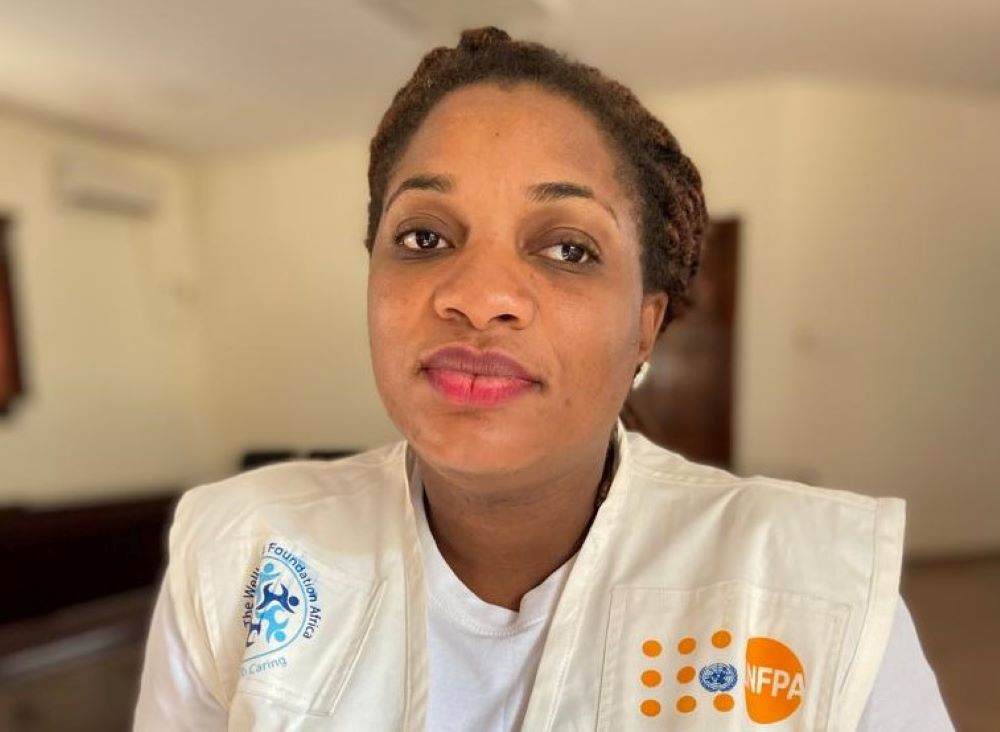
More than 60% of all pregnant women in Nigeria experience anaemia of some kind, which poses serious health risks for both mother and child. With 15 years of experience and two children of her own, Rita Momoh, a nurse-midwife in Abuja, understands these struggles all too well. When the time came for her to renew her professional license, Rita enrolled in training that includes a maternal nutrition module developed by Nutrition International, the United Nations Population Fund, the Nursing and Midwifery Council of Nigeria and state ministries. Putting her newly acquired knowledge into practice, Rita applied the skills she learned to support pregnant women and began offering counselling sessions, both at home and in the hospital, to provide basic knowledge of hygiene and nutrition to ensure safer, healthier pregnancies. “The nutrition course was an eye-opener,” Rita says. “I learned new knowledge and new approaches. I promised myself that from now on, no woman whom I counsel will have to suffer from anaemia.”
Read the story: Lady health workers are a key link to successful breastfeeding in Pakistan
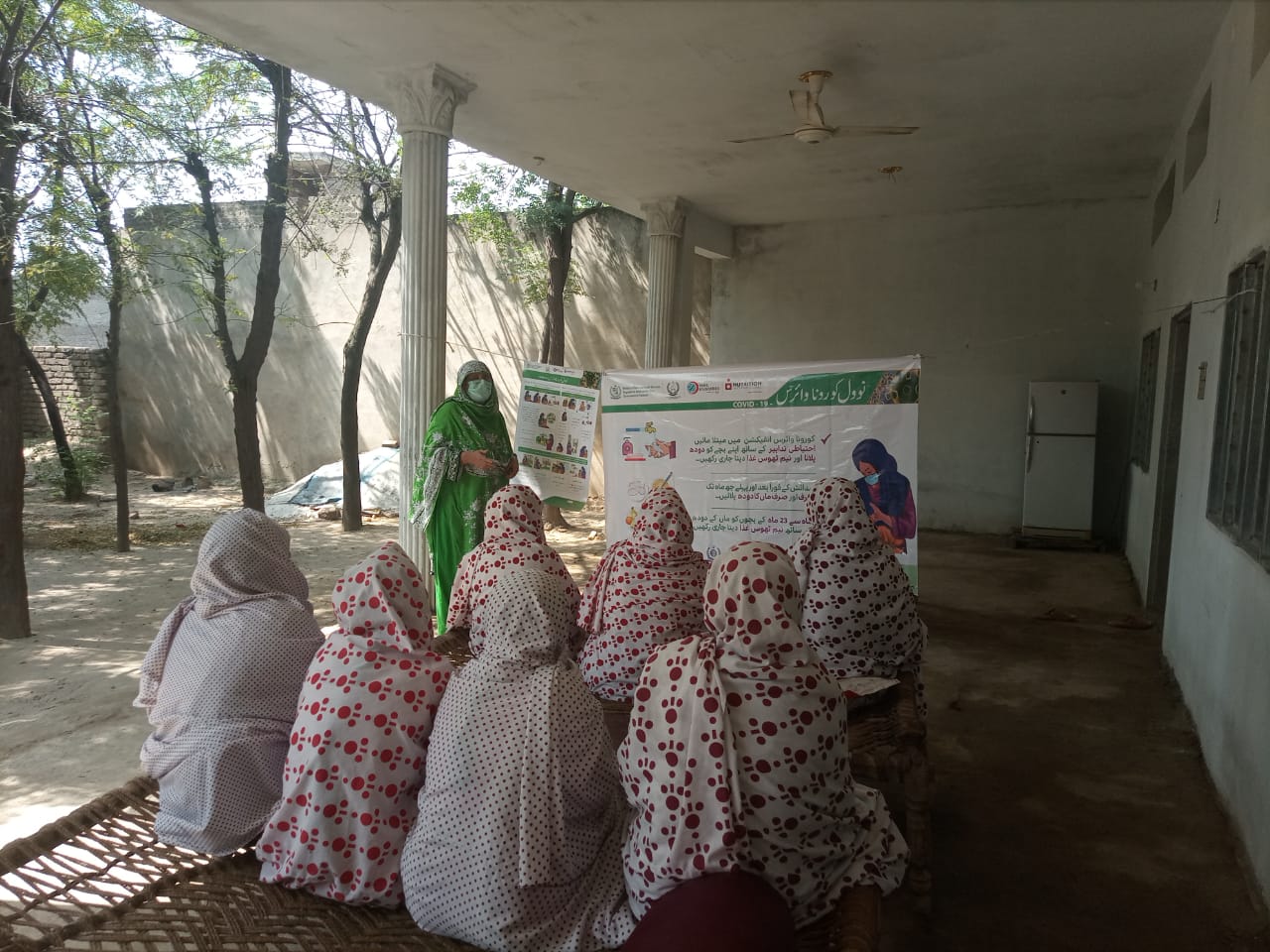
In Pakistan, Nutrition International-trained lady health workers to provide improved counselling and skilled lactation support to mothers. In addition to door-to-door visits, lady health workers host peer sessions for lactating mothers and their families to promote successful breastfeeding and combat misconceptions, with the goal of equipping families with knowledge on the power of breastfeeding to facilitate optimal growth. Read on to discover three examples of the difference that lady health workers’ support is making for families.
Read the story: Community health volunteer goes door-to-door in support of adolescent girls’ nutrition
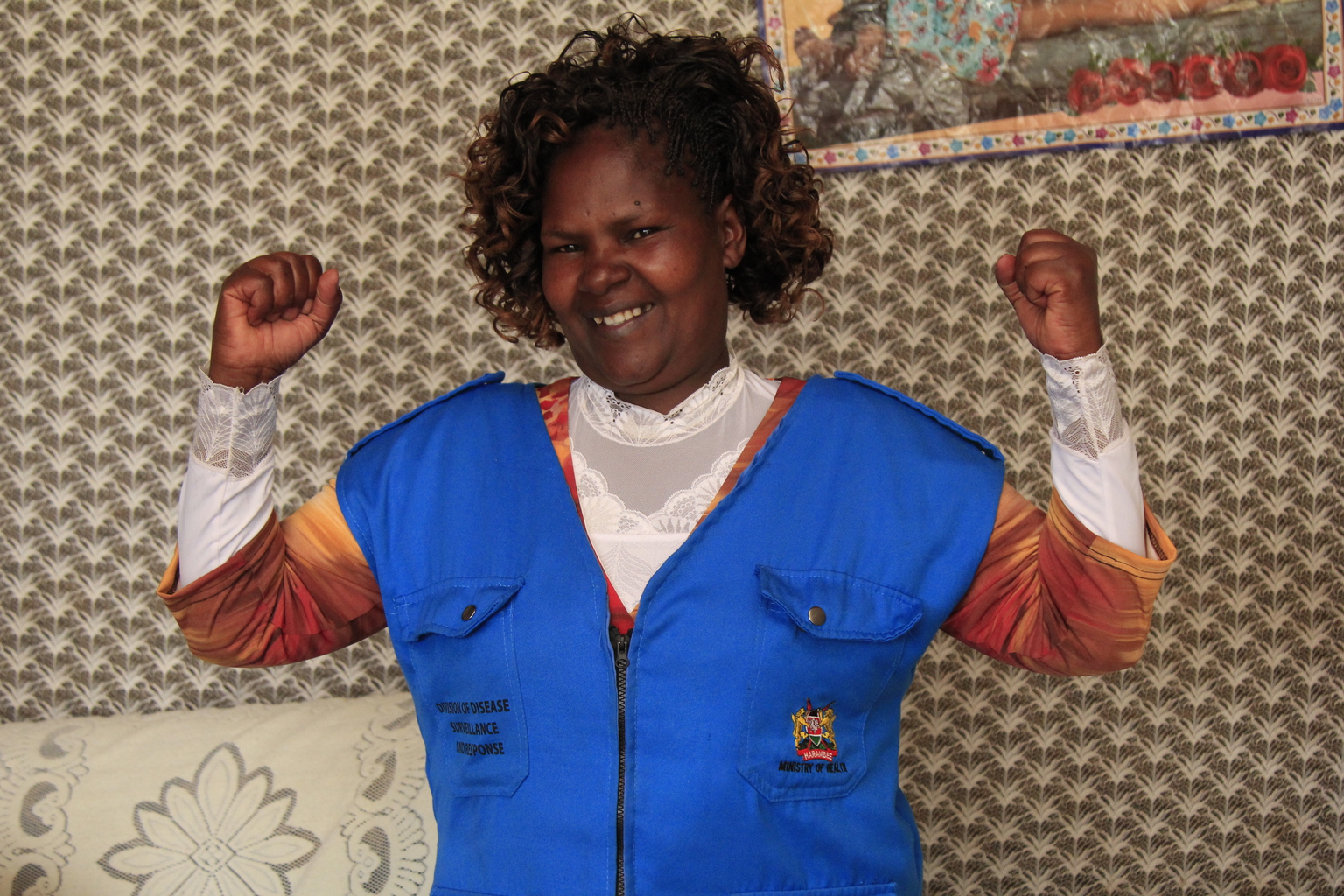
When COVID-19 forced schools to close, adolescent girls around the world faced barriers in accessing anaemia prevention interventions. Maureen Wangari, a farmer in Nakuru County, Kenya stepped forward to turn these obstacles into opportunities. Not wanting her daughters and other girls in her community to fall behind, the community health volunteer participated in a training session from Nutrition International, through the county government, on adolescent nutrition and anaemia prevention in the COVID-19 context. Armed with this knowledge, Wangari began going door-to-door spreading awareness about good nutrition to adolescent girls in her community and mobilizing them to access iron and folic acid supplements from the nearby health facilities.
Read the story: Tania’s relentless fight against childhood diarrhoea is saving young lives
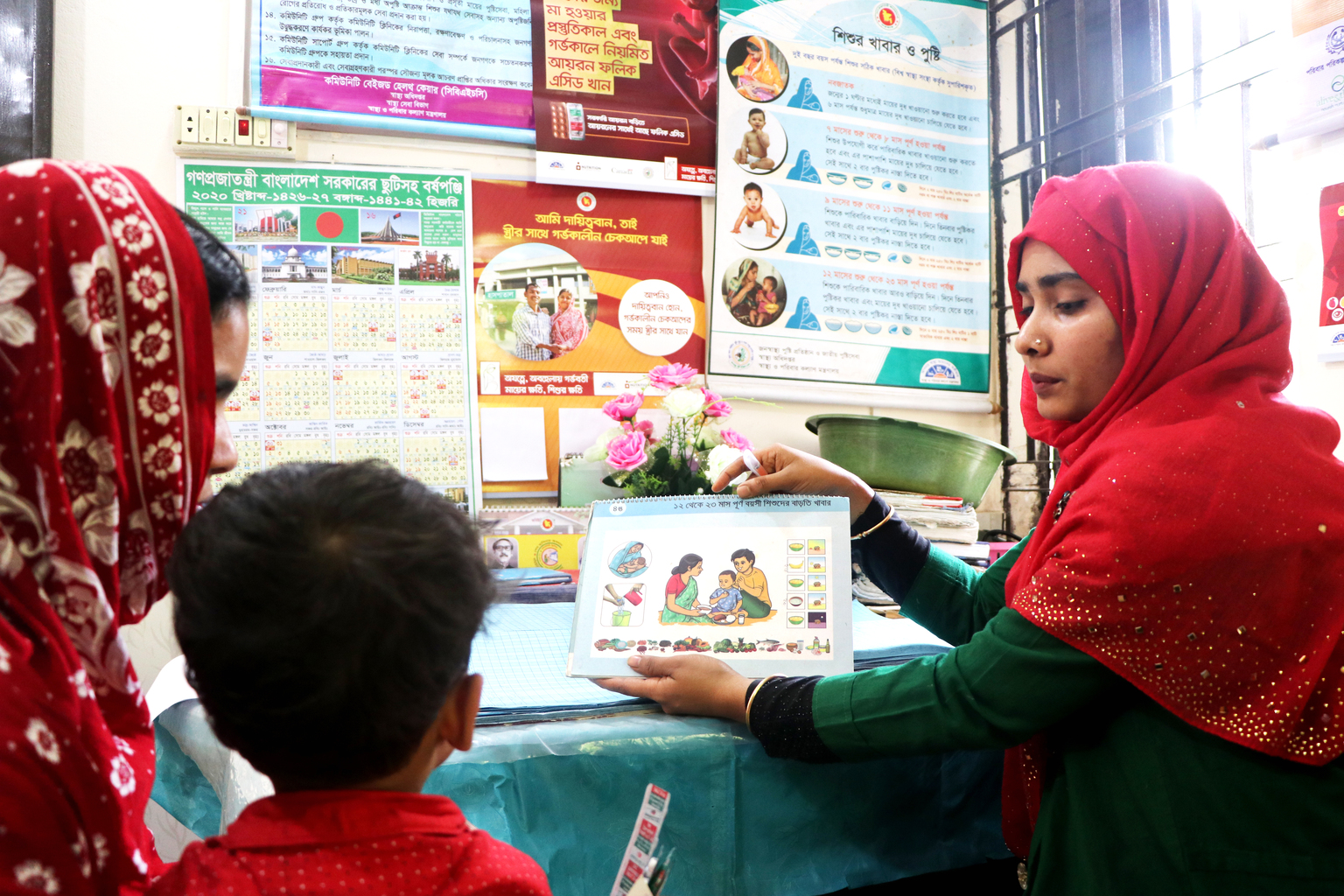
Childhood diarrhoea is the second leading cause of child mortality globally and is a public health issue in Bangladesh, where children under three years of age experience an average of three episodes every year. To expand her knowledge and save young lives, Tania, a community healthcare provider in the village of Umedpur, participated in an intensive training from Nutrition International, with support from the Zinc Alliance for Child Health, on how to identify the signs and symptoms of diarrhoea and how to use zinc and low-osmolarity oral rehydration salts (LO-ORS) in treatment. Since then, she has been tirelessly working to reduce the severity of childhood diarrhoea cases in her village and feels better equipped to do so. “Managing diarrhoea with LO-ORS is a popular and widely known practice,” she says. “But combining it with zinc, an essential micronutrient, has worked wonders – reducing the duration and severity of diarrhoeal episodes in children I see.”
Read the story: From period stigma to peer support
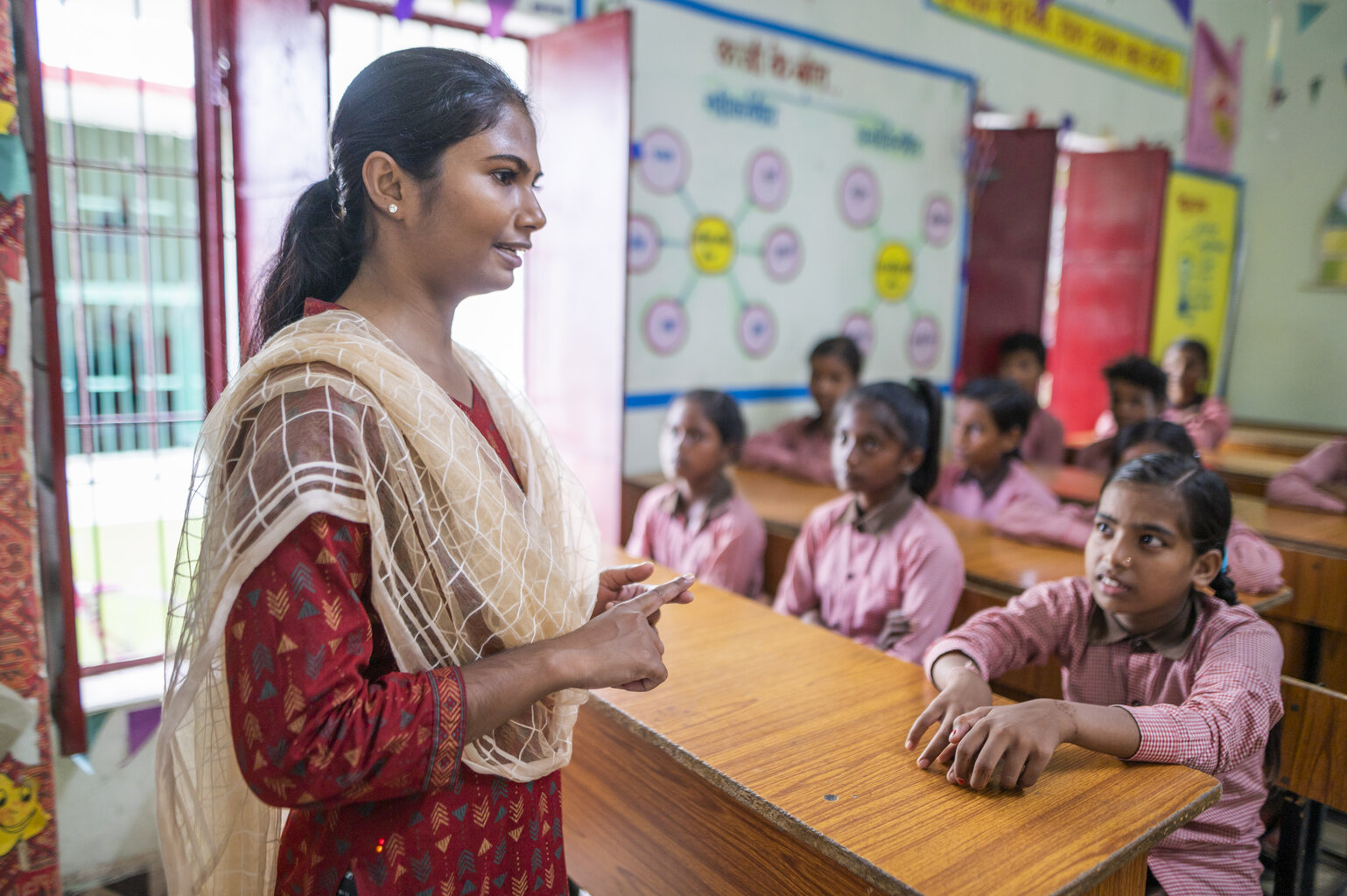
Across Uttar Pradesh, India, adolescent girls are speaking up about a subject once considered taboo – their periods. Thanks to Nutrition International’s new pilot initiative that promotes menstrual health and hygiene, teachers are normalizing previously taboo topics in the classroom and are supporting adolescent girls to challenge the misconceptions and stigma that have been passed down through generations of women. These lessons are empowering young girls to take charge of their menstrual health so they can confidently manage their periods, and stay focused on their studies.
Read the story: Shazia’s story: Vitamin A Supplementation during COVID-19 in Pakistan

In Pakistan, 51.5% of children suffer from vitamin A deficiency, which can cause blindness and increases the risk of illness and death from common childhood diseases. For nearly two decades, frontline health worker Shazia Ahmjad has been promoting nutrition for infants and young children in Ravi Town. When the pandemic halted the country’s national immunization days, Nutrition International worked with the Government of Pakistan to develop new vitamin A supplementation (VAS) guidelines and adapt programming according to the new COVID-19 protocols and regulations. With this knowledge, Shazia began going door-to-door to record COVID-19 cases and deliver both VAS and polio vaccines to ensure no child was missed.